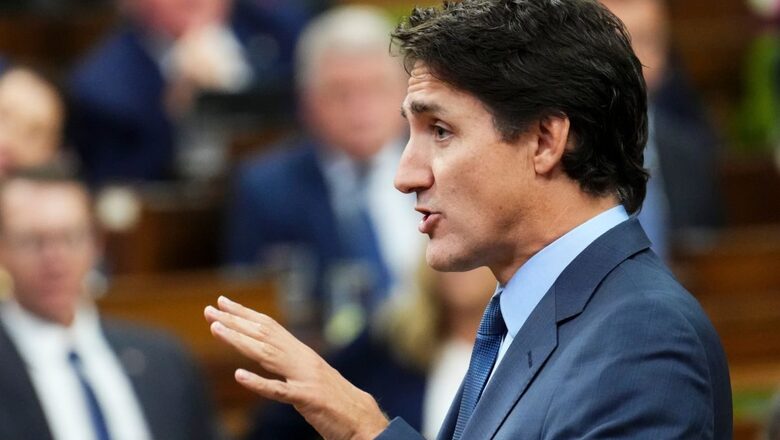
views
Canada has announced that it is imposing an immediate two-year cap on new international student visas to tackle a housing crisis and target institutional “bad actors”.
Immigration Minister Marc Miller said there will be a 35 per cent reduction in new study visas in 2024 as part of the cap. Last year Canada issued nearly 1 million study permits, about three times that of a decade ago, according to government data.
Here is all you need to know about the government’s plan and whether it will affect Indians:
What is the Govt’s Visa Plan?
Canada’s immigration minister Marc Miller said the government will introduce a temporary, two-year cap on student visas, which will result in the issue of about 364,000 visas in 2024, a decrease of 35% from 2023. Nearly 560,000 such visas were issued last year.
While the cap will remain in place for two years; the number of permits to be issued in 2025 will be reassessed at the end of this year, the Immigration Minister said.
To maintain a sustainable level of temporary residence in Canada, as well to ensure that there is no further growth in the number of international students in Canada for 2024, we are setting a national application intake cap for two years from 2024, Global News quoted Miller as saying.
Starting in September, international students who begin a programme that’s part of a curriculum licensing arrangement (one where a private college has been licensed to deliver the curriculum of an associated public college) will no longer be eligible for a post-graduation work permit. The permits were previously seen as an easy path to securing permanent residency.
Graduates of master’s and other “short graduate-level programmes” will “soon” be able to apply for a three-year work permit, the government says. Open work permits will also be made available to the spouses of international students in master’s and doctoral programs, the government statement said.
Why is Canada Imposing Curbs?
Canada has emerged as a popular destination for international students, especially from India, since it is relatively easy to obtain work permits after finishing courses. But the surge in international students led to a severe shortage of apartments, which pushed up housing rents. In December, rents nationwide rose 7.7% from a year earlier, as per reports.
The move comes amid pressure on the federal government from provinces on the increasing numbers of non-permanent residents entering Canada while the country struggles with a housing crisis.
Canadian Prime Minister Justin Trudeau’s popularity has been dented mainly due to the affordability crisis, and opposition Conservative Party leader Pierre Poilievre has taken a commanding lead over Trudeau in opinion polls ahead of an election next year.
The changes announced come over a month after Miller first announced measures intended to target what the minister described as “the diploma equivalent of puppy mills.”
Miller said that by imposing the cap, the federal government is taking action against some small private colleges.
The move will help the government to target institutional “bad actors”, he said. “It’s unacceptable that some private institutions have taken advantage of international students by operating under-resourced campuses, lacking supports for students and charging high tuition fees all the while significantly increasing their intake of international students,” Miller said.
Immigration Minister Marc Miller earlier this month said that a cap on international students would not be a one-size-fits-all solution to housing shortages across Canada. More than 800,000 international students were issued temporary study visas in 2022. Miller said last fall that 2023’s numbers were on track to be more than triple the number accepted 10 years ago.
Will It Affect Indians?
The vast majority, about 40%, of foreign students come from India, with China coming in second with about 12%, according to official data from 2022.
Therefore, the move is expected to impact students from India who see Canada as a preferred destination for higher studies.
India was the first among the top ten origin countries of study permit holders in 2022 in Canada, with a total of 319,000 students.
The move comes months after a diplomatic row between India and Canada in October last year when the visa services were temporarily suspended. The row had already led to visa backlogs as the embassy in both the countries were hit due to shortage of staff.
Will It Affect Canadian Economy?
Yes. International students contribute about $16.4 billion annually to the Canadian economy. The move will hurt many educational institutions that had expanded their campuses in the hope of a continued inflow of students.
Ontario, the most populous province, received the biggest share of international students. Some businesses, including restaurants and retail sectors, have warned that a cap on foreign students will create a shortage of temporary workers.
Restaurants across Canada are grappling with labour shortages with nearly 100,000 vacancies, and international students made up 4.6% of 1.1 million workers in the food service industry in 2023.
Canadian banks had benefited from the influx of new students, as each student was required to have a Guaranteed Investment Certificates (GIC) of more than C$20,000, a prerequisite for international students to cover living expenses.
(With inputs from agencies)



















Comments
0 comment